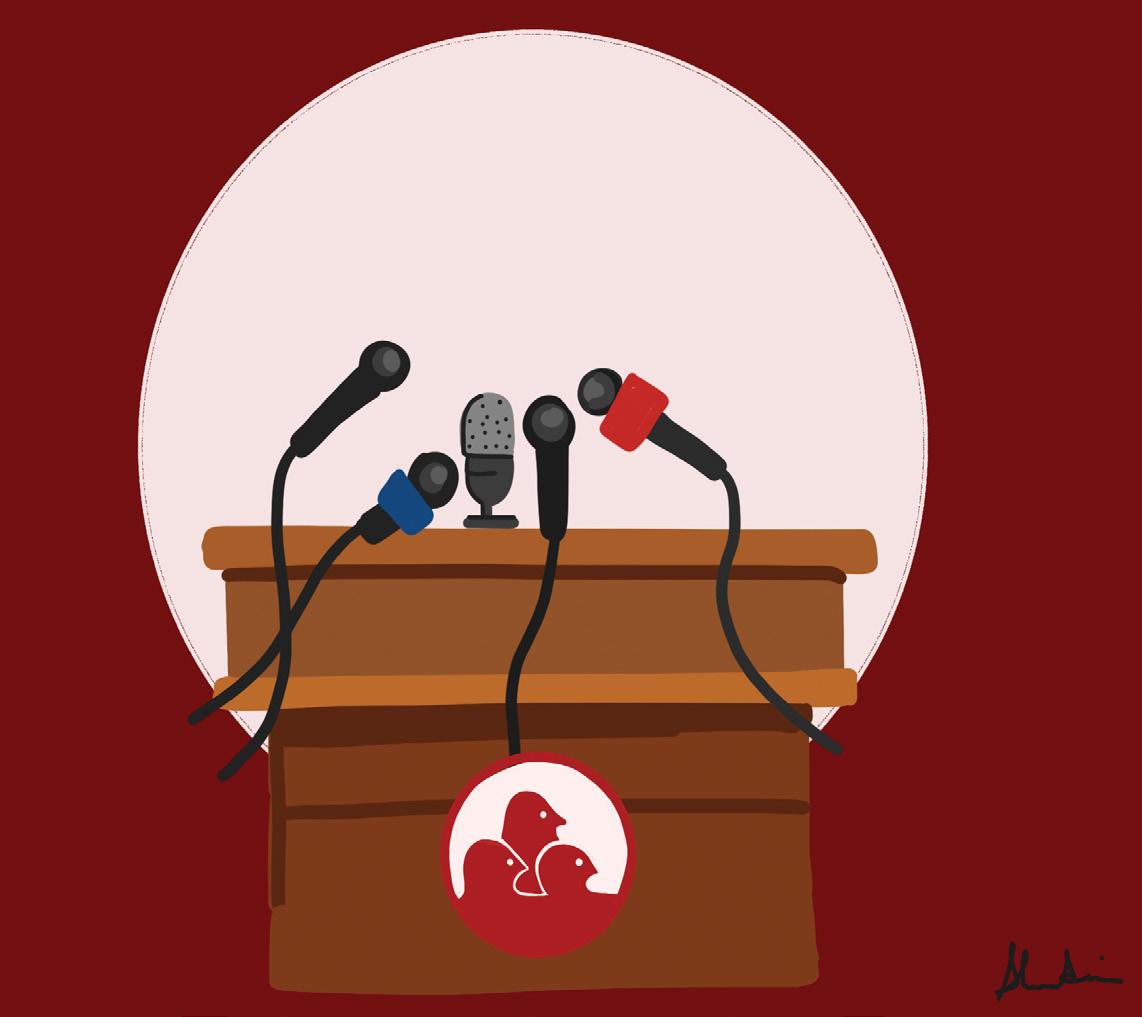
2 minute read
SSMU spends $1,500 on incoming executives’ PR training, hires publicist
Only elected executive allowed to formally speak with media and student body, with some exceptions
Caroline Sun Staff Writer
Advertisement
Continued from page 1.
Pizarro, however, confirmed that the Society spent $1,500 on the training.
SSMU hired a PR advisor, whose name and affiliated firm were not disclosed to the Tribune, who will work with future executives and some SSMU staff to establish proper communication networks with students and media. Pizarro did not share details of SSMU’s contract with the advisor or whether the training was outsourced before the advisor was hired.
“Most training is done with the SSMU team and outgoing Executives; we have a full team of managers and employees who specialize in various departments and share their expertise with the incoming Executives starting May 1 of each year,” Pizarro wrote in an email to the Tribune. “The Executive team typically prepares a month full of training with Commissioners, Staff, outgoing Executives, and groups on campus, including McGill staff, to ensure a smooth transition.”
The advising will be mandatory for all SSMU executives and a few unelected positions. Pizarro explained that the additional employees who will get the training were chosen based on the likelihood of their interactions with media outlets during their tenure.
“The rule is that staff cannot speak to [the] media because they are not elected people, and so, it is only positions that can speak to the media [who will receive the PR training],” Pizarro wrote. “But there are some exceptions made, usually when staff is much more qualified.”
Rory*, an SSMU employee, has yet to receive the PR training but believes it is important because it provides some instruction on how to speak comfortably with the public for employees who lack experience doing so.
“Some people might think about the training in a twisted way, [...] but I don’t think about it in that way,” Rory told the Tribune. “I’ve seen the [executive] committee interact with the public, and they seem to be very comfortable and eloquent.”
Aimy Croner, U4 Arts, thinks the PR training is beneficial to students working for SSMU and the student body at large. As a student who recently started working at McGill, she felt unprepared for certain tasks and believes that this type of training would help her learn the skills not taught in the classroom setting.
“I think that [PR training] is a really interesting initiative,” Croner said. “ It would take away that barrier. Like, I know that SSMU is for the students, but some people might [not] really know about it and might think that it’s still part of the institution of McGill. So you have a small barrier there in terms of ‘I don’t want to say something wrong.’”
Kateri Duranceau, U1 Arts, echoed Croner’s sentiments about the training having the potential to increase transparency, but she worries that SSMU executives would prioritize PR-safe strategies over promptly resolving problems brought to their attention by students.
“I think it’s important to learn how to communicate with customers [....] But also, I think it could give an excuse to people to just not really do their job [well],” Duranceau told the Tribune. “So it’s important but in moderation.”
The Tribune did not receive further information regarding the PR training, including the budget set aside for the advisor’s salary.
*Rory’s name has been changed to preserve their anonymity.









